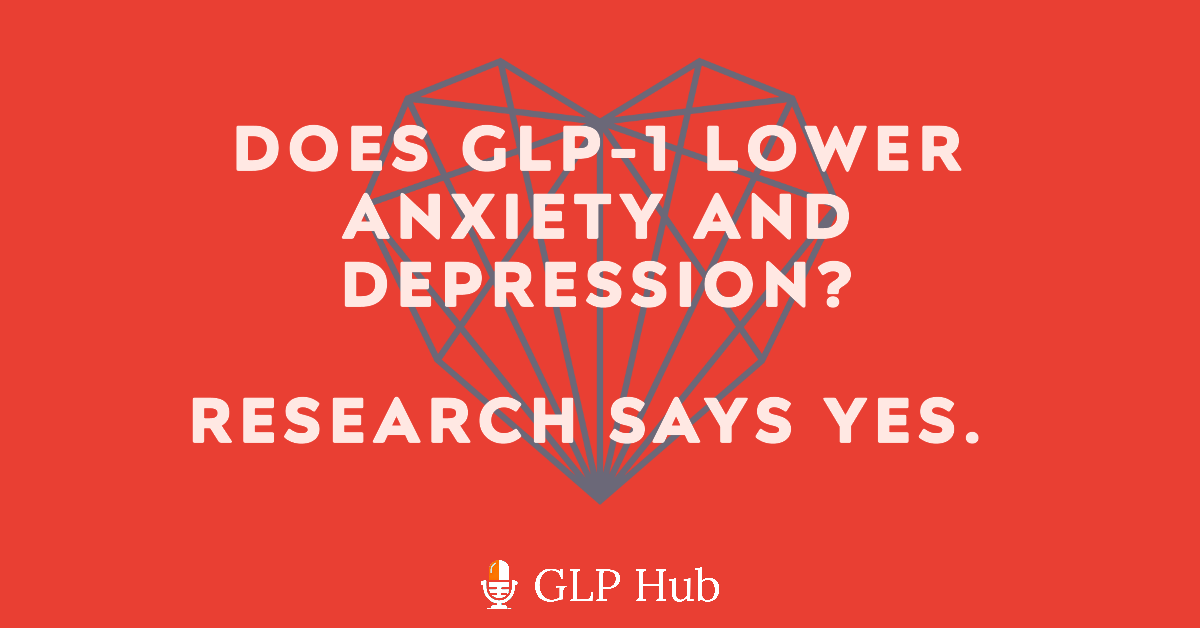Introduction
Ozempic (semaglutide) has gained significant attention in the medical community and among individuals looking for weight loss solutions and effective diabetes management. However, like any medication, Ozempic comes with its set of potential side effects, one of which includes tiredness or fatigue. This raises an important question for many: Does Ozempic make you tired?
Understanding the side effects of any medication is crucial to managing one’s health and well-being effectively. Tiredness, although it may seem minor compared to other potential side effects, can significantly impact an individual’s daily life and overall quality of life. Therefore, it’s essential to not only identify if Ozempic could be the cause of this tiredness but also to explore what can be done about it if you’re experiencing this side effect.
This blog post will draw on clinical studies, expert opinions, and patient experiences to provide an overview of why Ozempic might make you feel tired, and offer practical advice on how to manage this condition.
Understanding Ozempic and Its Side Effects
Before diving into the specifics of how Ozempic may affect energy levels, let’s take a closer look at what Ozempic is and its primary uses. Ozempic, with the active ingredient semaglutide, belongs to a class of drugs known as GLP-1 receptor agonists, which work by mimicking the action of the GLP-1 hormone. This hormone is integral to regulating blood sugar levels in the body.
How Ozempic (Semaglutide) Works in the Body:
Semaglutide (marketed as Ozempic) functions by enhancing the production of insulin when blood sugar levels are high. Additionally, it slows down the digestion process, which helps in controlling appetite and, by extension, supports weight loss efforts.
Common Side Effects:
Like any medication, Ozempic has its share of side effects. The most common ones include mild to moderate gastrointestinal issues such as nausea, vomiting, diarrhea, abdominal pain, and constipation. However, it’s the potential for causing tiredness or fatigue that has many patients and healthcare providers paying close attention.
The impact of Ozempic on energy levels is not as widely discussed as its other side effects, yet it’s a concern for those who experience it. The mechanism behind this tiredness is not entirely clear and may be related to several factors, including changes in blood sugar levels, the body’s adjustment to the medication, or even dehydration due to the medication’s gastrointestinal effects.
Does Ozempic Make You Tired?
When addressing concerns about tiredness associated with Ozempic, it’s essential to look at both clinical research and real-world experiences of those on the medication. Tiredness or fatigue as a side effect can stem from various factors, including the body’s response to the medication, changes in blood sugar levels, and individual health conditions.
Clinical Studies and Expert Opinions
To date, clinical studies on Ozempic primarily highlight gastrointestinal side effects as the most common. However, fatigue has been noted by some patients, though it is less commonly reported in clinical trials compared to other side effects. Experts suggest that while Ozempic directly influencing energy levels isn’t extensively documented, the body’s adjustment to lower blood sugar levels and weight loss could contribute to feelings of tiredness.
It’s important to distinguish between tiredness as a direct side effect of Ozempic and tiredness resulting from the body’s adaptation to changes in blood sugar management and weight. Healthcare professionals often point out that as the body adjusts to improved blood sugar levels, patients might experience periods of feeling tired, especially if their blood sugar levels were consistently high before starting the medication.
Patient Testimonials
Anecdotal evidence from patients using Ozempic offers additional insights. Some individuals report experiencing tiredness or fatigue, particularly in the initial stages of their treatment. These reports vary widely, with some patients noting that the tiredness subsides after their body adjusts to the medication, while others find it a persistent issue.
In online forums and patient discussions, individuals have shared their strategies for managing tiredness, such as adjusting their diet, increasing hydration, and modifying their activity levels. These testimonials underscore the importance of a personalized approach to managing side effects, highlighting that individual experiences can differ significantly.
Understanding the Link
The connection between Ozempic and tiredness may not be straightforward and could be influenced by several factors, including:
- Blood Sugar Fluctuations: Rapid changes in blood sugar levels can affect energy levels, leading to feelings of tiredness as the body adjusts.
- Dehydration and Electrolyte Imbalance: Gastrointestinal side effects like nausea and vomiting can lead to dehydration, contributing to fatigue.
- Dietary Changes: Patients on Ozempic often make dietary changes to support weight loss, which can also affect energy levels, especially if caloric intake is significantly reduced.
Given these considerations, it’s clear that while Ozempic might be associated with tiredness in some patients, the experience is not universal. Managing tiredness effectively involves monitoring blood sugar levels, staying hydrated, and consulting with a healthcare provider to adjust treatment plans as necessary.
9 Ways to Manage Tiredness Caused by Ozempic
Managing tiredness associated with Ozempic involves a multifaceted approach that addresses potential causes and incorporates lifestyle adjustments. If you’re experiencing fatigue while taking Ozempic, consider the following strategies to help mitigate this side effect:
1. Monitor Your Blood Sugar Levels:
- Keep a close eye on your blood sugar levels to ensure they remain within a healthy range. Sudden drops or fluctuations can contribute to feelings of tiredness. If you notice significant changes, consult with your healthcare provider for possible adjustments to your treatment plan.
2. Stay Hydrated:
- Dehydration can exacerbate feelings of tiredness, especially if you’re experiencing gastrointestinal side effects like nausea or vomiting. Increase your water intake and consider electrolyte-replenishing beverages if you’re losing fluids due to these side effects.
3. Adjust Your Diet:
- Incorporate a balanced diet rich in whole foods, lean proteins, healthy fats, and complex carbohydrates to maintain steady energy levels throughout the day. Small, frequent meals can also help prevent significant fluctuations in blood sugar levels.
- Consult a dietitian for personalized advice, especially if you’re adjusting your diet for weight loss alongside Ozempic treatment.
4. Manage Your Sleep:
- Ensure you’re getting adequate rest. Poor sleep can worsen feelings of tiredness, creating a cycle that’s hard to break. Aim for 7-9 hours of quality sleep per night and maintain a regular sleep schedule.
5. Exercise Regularly:
- Regular physical activity can boost energy levels and help regulate blood sugar levels. Start with gentle activities like walking or yoga and gradually increase intensity based on your comfort and health status.
6. Review Medication Timing:
- Some patients find that adjusting the time of day they take Ozempic can impact their energy levels. Discuss with your healthcare provider if changing the timing of your dose could help manage tiredness.
7. Consider Vitamin and Mineral Supplements:
- Deficiencies in vitamins and minerals, such as Vitamin D, B12, and iron, can lead to fatigue. With your doctor’s guidance, consider supplements if your diet might not provide adequate levels.
8. Speak with Your Healthcare Provider:
- If tiredness persists or significantly impacts your daily life, it’s crucial to consult your healthcare provider. They may suggest adjusting your Ozempic dose, switching medications, or exploring other causes of fatigue unrelated to Ozempic.
9. Listen to Your Body:
- Recognize and respect your body’s signals. If you need to rest, allow yourself to do so without guilt. Balancing activity with adequate rest is key to managing tiredness effectively.
By adopting these strategies, you can help manage tiredness related to Ozempic and improve your overall well-being. It’s important to communicate openly with your healthcare provider about any side effects you’re experiencing, as they can offer personalized advice and support tailored to your health needs.
9 Ways to Manage Ozempic Fatigue
1. Monitor your blood sugar levels 🌡️
2. Stay hydrated 💦
3. Adjust your diet 🥦
4. Manage your sleep 😴
5. Exercise regularly 🏃
6. Review medication timing ⏱️
7. Consider vitamin & mineral supplements 💊
8. Speak with your healthcare provider 🩺
9. Listen to your body 👂
Conclusion
Navigating the side effects of any medication, including Ozempic, requires patience, understanding, and proactive management strategies. While tiredness can be an unwelcome companion to treatment, recognizing that this side effect can be managed effectively is crucial. By closely monitoring your blood sugar levels, staying hydrated, maintaining a balanced diet, ensuring adequate sleep, engaging in regular physical activity, and consulting with your healthcare provider, you can mitigate the impact of tiredness on your daily life.
Remember that individual experiences with Ozempic will vary. What works for one person may not work for another, underscoring the importance of personalized care and advice from healthcare professionals. If you find that tiredness becomes overwhelming or persistent, don’t hesitate to reach out to your doctor.
Adjustments to your treatment plan or additional investigations may be necessary to ensure that you can continue to benefit from Ozempic without compromising your quality of life.





